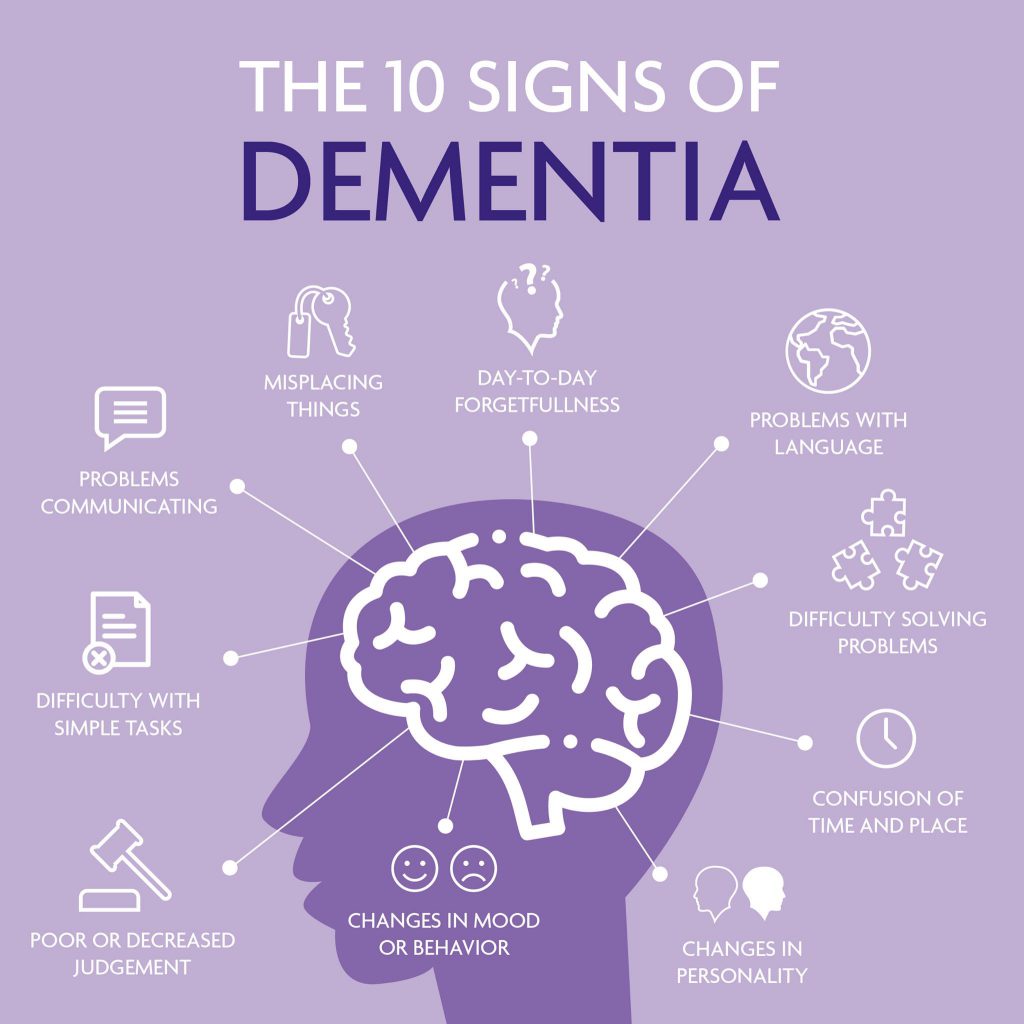There are currently 850,000 people with dementia in the UK, with numbers set to rise to over 1 million by 2025. It affects 1 in 6 people over the age of 80 and there are over 42,000 people under the age of 65 with dementia in the UK alone.
If you are not sure about the symptoms and details of types of dementia, you are not alone. Quite often, initial symptoms can be a little confusing to understand, both for the person suffering and for friends or family members around them.
Here’s a simple explanation of what to look out for, how to recognise the signs and how to support someone with dementia.
What is dementia?
The term dementia is derived from the Latin ‘demens’ which essentially means loss of the mind. It is a general term but there are many different causes of dementia with the most common cause being Alzheimer’s disease. It is a progressive disorder that affects how the brain works and in particular, the ability to remember, think and reason. It is not a disease in itself, but a group of symptoms that may accompany a number of diseases that can affect the brain.
Dementia affects people in different ways, depending on the type of dementia. The impact can be physical, emotional and psychological, and can profoundly change the practicalities of everyday life.
Types of dementia
Different types of dementia are caused by various physical changes in the brain. These changes also make it difficult for people to perform basic daily activities. All types of dementia affect memory, language and decision-making. The 5 most common types of dementia include:
- Alzheimer’s disease.
- Vascular dementia.
- Lewy body dementia.
- Frontotemporal dementia, including Pick’s disease.
- Others, including Creutzfeldt-Jakob disease.
Further details and information are available on the Alzheimer’s Society website under types of dementia.
Recognise the signs
It is not always immediately clear that a person is living with dementia. First symptoms might show that thy don’t seem like the person they used to be, but it is important to understand that everyone’s dementia journey is unique.
People will maintain different strengths and abilities and experience different challenges along the course of the disease. They might say or do things that seem strange and will find it harder to do everyday things. Here are 10 key early warning signs to look out for.

Supporting someone with dementia
Dementia has particular implications for family members or friends who are providing care and are directly affected by the changes that dementia can bring. However, it is important to be aware that with the right help, people with dementia can be supported and still have a good quality of life and experience a sense of well-being.
Alzheimer’s Society offer great practical advice guides for day-to-day tasks to help assist those living with dementia and their carers: https://www.alzheimers.org.uk/get-support/daily-living
If you or someone you know is showing symptoms associated with dementia, it is important to visit a GP as soon as possible. Alternatively, at Glasgow Memory Clinic, we offer a memory screening service for those over 50 who are concerned about memory decline and who are potentially interested in participating in our research program. For more information on this, please call us on 0141 948 0206 or email info@glasgowmemoryclinic.com